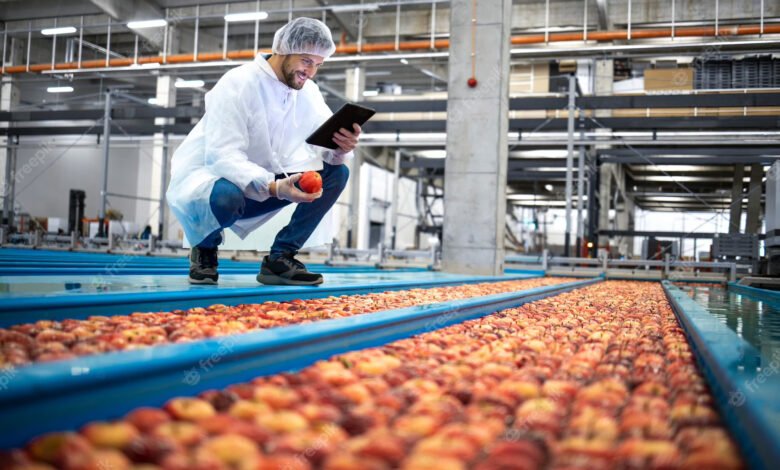Why Food Industry is gold to the Indian startups

India has been a land of different foods, different recipes, and different cultural cuisines. India as a country is welcoming of both Western and traditional foods. Taking this privilege to satisfy the taste buds of Indians, the Indian food industry has seen massive growth over the past couple of years.
The food industry encompasses all the activities involved in the production, processing, distribution, and consumption of food products.
The food industry is diverse and comprises the following industries: agriculture, food processing, food service, food retail, food technology, food safety, and food research. It involves an intricate supply chain that begins with farmers and growers who produce raw food materials, continues with food processors who turn these raw materials into different food products and ends with distributors, retailers, and food service establishments who place these food products on the shelves for consumers.
By creating jobs, generating income, and offering opportunities for export, the food industry plays a crucial role in providing food and beverages for human consumption. However, it must adhere to several laws and standards relating to food safety, quality, labelling, and packaging in order to ensure that food products are secure, wholesome, and adhere to consumer expectations.
The following are some of the startups in the food industry:
FreshToHome: FreshToHome is an e-commerce platform that focuses on delivering fresh and chemical-free fish, meat, and other perishable food products directly from fishermen, farmers, and other sources to consumers’ doorsteps. It aims to provide high-quality, safe, and traceable food products to consumers, leveraging technology and supply-chain-innovation to ensure freshness.
Ninjacart: Ninjacart is a B2B agri-tech startup that uses technology to connect farmers and producers with retailers and businesses in the food supply chain. It aims to reduce food wastage, improve efficiency, and ensure fair prices for farmers by providing a data-driven supply chain platform that streamlines the sourcing, handling, and distribution of fruits and vegetables to retailers & businesses.
AgNext: AgNext is an agri-tech startup that leverages Artificial Intelligence (AI) and Machine Learning (ML) technologies to provide quality testing and assessment solutions for food and agricultural products. Their solutions enable quick and accurate assessment of various quality parameters such as freshness, ripeness, nutritional content, and safety of fruits, vegetables, grains, and other agricultural commodities. This helps farmers, processors, and traders to make informed decisions.
CropIn: CropIn is an agri-tech startup that offers a digital farm management platform that uses data analytics, remote sensing, and AI to enable farmers to make data-driven decisions and optimize their crop production. The platform provides real-time insights on crop health, weather conditions, pest management, and other critical parameters, helping farmers to increase their yield, reduce crop losses, and adopt sustainable farming practices.
Sattviko: Sattviko is a foodtech startup that focuses on offering healthy and nutritious food products, including snacks, meals, and beverages. They use traditional Indian ingredients and recipes to create modern, healthy, and tasty food products that cater to health-conscious and socially aware consumers.
The above startups are a few examples of startups present in the food industry.
Furthermore, with the ever-emerging demand for different foods and consumer preferences, this industry is warm and welcoming to different startups with unique USPs.
According to a report by Research and Markets, the global food market was valued at USD 8.7 trillion in 2020 and is projected to reach USD 11.0 trillion by 2026, with a CAGR of 4.2% during the forecast period.
Startups can use this opportunity to further grow their business and keep readiness for future demands. To do so, the following pointers may be considered:
Food Processing and Value Addition: India is one of the world’s largest producers of agricultural commodities. Hence, there is ample scope for food processing startups to add value to these raw materials by developing innovative processing techniques, creating packaged & processed food products, and catering to changing consumer demands for convenient, healthy, and ready-to-eat food options.
Food Technology and Innovation: There is a growing need for technological advancements in the food industry, including areas such as food safety & traceability, supply chain management, automation, analytics, and sustainable packaging. Startups that leverage technology to solve challenges and improve efficiency in the food industry can find significant opportunities in the Indian market.
Sustainable and Healthy Food Options: With increasing awareness about health, sustainability, and environmental concerns, there is a growing demand for sustainable and healthy food options in India. Startups that focus on producing and promoting organic, plant-based, local, and eco-friendly food products can tap into this market and cater to the changing preferences of consumers.
Food Service and Delivery: The food service and delivery segment in India has been experiencing rapid growth, driven by changing consumer lifestyles, urbanization, and increased disposable incomes. Startups that offer innovative food service models, such as cloud kitchens, online food delivery platforms, meal subscription services, and restaurant technology solutions, can find significant opportunities in the Indian food service and delivery market.
Food Retail and E-commerce: The food retail and e-commerce segment in India is also growing, with consumers increasingly opting for online grocery shopping and home delivery of food products. Startups that focus on building efficient and innovative online grocery platforms, direct-to-consumer food brands, and last-mile delivery solutions can tap into this market.
Food Safety and Quality: Ensuring food safety and quality is a critical aspect of the food industry, and startups that offer innovative solutions for food safety testing, quality control, traceability, and certification can find opportunities with a growing focus on food safety regulations and standards.
Rural and Regional Food Products: India is known for its diverse culinary heritage and regional food products. Startups that focus on promoting and marketing unique and traditional food products from different regions of India, including indigenous crops, spices, and traditional food processing techniques, can find opportunities in India and globally.
The future scope for Indian startups in the food industry is promising, as the sector continues to experience significant growth and transformation. These startups can explore the following potential areas of opportunity in the future:
Expansion to Tier 2 and Tier 3 Cities: While the major metropolitan cities in India have seen significant growth in the food industry and foodtech startups, there is still ample room for expansion in Tier 2 and Tier 3 cities. These cities are experiencing rapid urbanization, rising disposable incomes, and increasing adoption of online services, including food delivery and e-commerce. Food startups can explore this growing market by expanding their services, reaching out to smaller cities and towns, and catering to the unique preferences and demands of consumers in these regions.
Health and Wellness: With the growing awareness about health and wellness, there is an increasing demand for nutritious, organic, and sustainable food products. Startups that focus on providing healthy and sustainable food options, such as organic produce, plant-based protein products, and functional foods, are likely to find opportunities for growth. Additionally, startups that offer personalized nutrition solutions, meal planning, and dietary recommendations based on data-driven insights and AI algorithms could also gain traction in the market.
Innovation in Food Processing: There is a growing need for innovation in food processing to improve food safety, extend shelf-life, and reduce food wastage. Startups that leverage advanced technologies such as AI, ML, blockchain, and IoT to optimize food processing and preservation techniques, enhance supply-chain-efficiency, and reduce food losses are likely to find significant opportunities for growth. This could include innovations in food packaging, food preservation techniques, food safety testing, and supply chain optimization solutions.
Sustainable and Local Sourcing: Consumers are increasingly concerned about the environmental impact of food production, including issues such as deforestation, water pollution, and carbon emissions. Startups that focus on sustainable and local sourcing of food ingredients, promoting regenerative agriculture, and reducing food miles could gain popularity among environmentally-conscious consumers. These startups can leverage technologies such as blockchain and traceability solutions to provide transparent and verifiable information about the origin, production practices, and environmental impact of food products.
Rural and Agricultural Innovation: India has a large rural population engaged in agricultural activities. Startups that focus on leveraging technology to empower farmers, improve agricultural practices, and enhance the productivity of rural agricultural communities could have significant potential for growth. This could include solutions such as smart-farming tools, farm management platforms, weather prediction models, and crop monitoring systems that enable farmers to make data-driven decisions and optimize their crop production.
Alternative Food Delivery Models: While food delivery platforms like Zomato and Swiggy have gained significant traction in urban areas, there is potential for alternative food delivery models in the market. Startups that focus on niche segments such as hyper-local delivery, specialized cuisine, subscription-based meal plans, or meal kits could find opportunities for growth by catering to specific consumer preferences and demands.
Food Safety and Traceability: Food safety and traceability are critical concerns for consumers, especially in the wake of food adulteration and contamination incidents. Startups that offer innovative solutions for food safety testing, traceability, and quality assurance, such as blockchain-based traceability systems, IoT-enabled sensors for food monitoring, and advanced food testing technologies, could find significant demand from consumers, regulators, and industry stakeholders.
Overall, there are many opportunities for creativity, expansion, and modification in the food industry for Indian startups. These startups can help the food industry expand and flourish in India and outside by utilizing technology, sustainability, consumer-centricity, and innovation.





